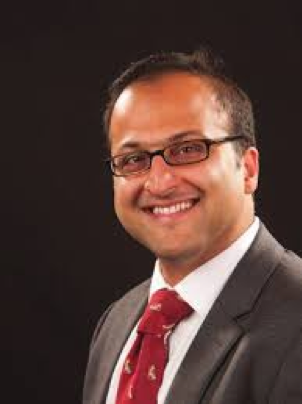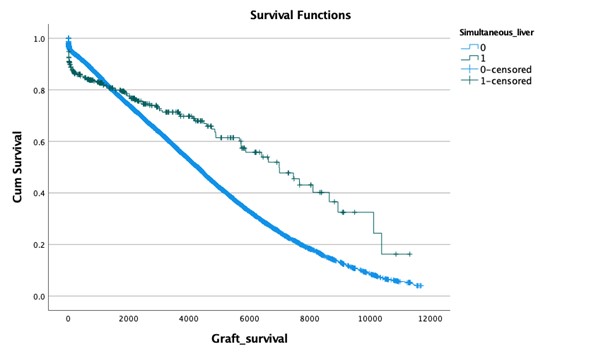Pankaj Chandak, United Kingdom has been granted the IPTA Scientific Congress Award

Kidney graft outcomes following kidney versus simultaneous liver-kidney transplantation – an UNOS database analysis
pankaj chandak1, Ioannis D. Kostakis1, Mikaela M. Charalambides1, Petrut Gogalniceanu1, George Papadakis1, Jelena Stojanovic, 2, Francis Calder1, Ioannis Loukopoulos1, Nicos Kessaris1.
1Paediatric Transplantation, Guy's, Evelina and Great Ormond Street Hospitals, London UK, London, United Kingdom; 2Paediatric Transplantation, Great Ormond Street Hospital , London, United Kingdom
Introduction: Simultaneous liver-kidney transplantation may confer an immunological advantage to the kidney graft. The aim of this study is to explore kidney graft outcomes following kidney versus simultaneous liver-kidney transplantation following the analysis of a large database.
Methods: Data were retrieved and analysed on kidney and combined liver-kidney transplants performed in pediatric recipients (younger than 18 years old) from October 1987 until September 2020, from the United Network for Organ Sharing (https://unos.org/). SPSS v28 was used for statistical analysis.
Results: There were 23597 kidney transplants (Group 1, 9628 female, median age 12, IQR 8) and 373 simultaneous liver-kidney transplants (Group 2, 183 female, median age 9, IQR 9). 10785 (45.7%) kidney grafts failed versus 109 (29.2%) kidneys from the simultaneous liver-kidney transplant group (P<0.001). Delayed graft function was present in 2068 (8.8%) in Group 1 and 70 (19%) in Group 2 (P<0.001). Primary non-function was 248 (1.1%) in Group 1 versus 7 (1.9%) in Group 2 (P=0.198). Kaplan-Meier Survival analysis showed a statistically significant difference between the two Groups (Log Rank of <0.001).

Conclusion: Delayed graft function is longer following simultaneous liver-kidney transplants. Despite this, simultaneous liver-kidney transplants have a better survival than kidney transplants alone. This may be due to the protective immunological effect of the liver transplant.